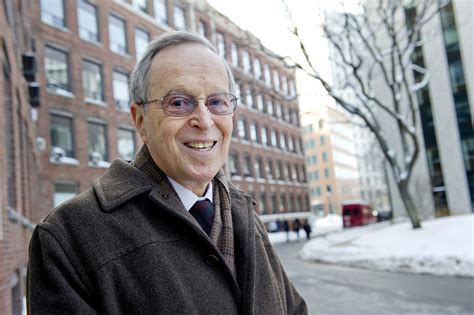A Quote by Spencer W. Kimball
We note the increasing coarseness of language and understand how Lot must have felt when he was, according to Peter, "vexed with the filthy conversation of the wicked." (2 Peter2:7.) We wonder why those of coarse and profane conversation, even if they refuse obedience to God's will, are so stunted mentally that they let their capacity to communicate grow more and more narrow. Language is like music; we rejoice in beauty, range, and quality in both, and we are demeaned by the repetition of a few sour notes.
Quote Topics
According
Beauty
Both
Capacity
Coarse
Communicate
Conversation
Even
Felt
Few
Filthy
God
God's Will
Grow
How
Increasing
Language
Like
Lot
Mentally
More
More And More
Music
Must
Narrow
Note
Notes
Obedience
Obedience To God
Peter
Profane
Quality
Range
Refuse
Rejoice
Repetition
Sour
Those
Understand
Why
Wicked
Will
Wonder
Related Quotes
When Galileo discovered he could use the tools of mathematics and mechanics to understand the motion of celestial bodies, he felt, in the words of one imminent researcher, that he had learned the language in which God recreated the universe. Today we are learning the language in which God created life. We are gaining ever more awe for the complexity, the beauty, the wonder of God's most devine and sacred gift.
I used to listen to so much doo-wop, and I've talked a lot about gospel music, but I realised a lot of that language came from doo-wop music. You know, "I Asked the Lord Above," "Heaven Sent Me an Angel." That's rock-'n-roll, and that's where a lot of this language is coming from. Also, I've said before that as soon as you start having a conversation with Jesus in a song you know you're dealing with issues of morality and how fragile it is to be human. It's a shortcut to putting those ideas across.
Language [can] be expressed . . . by movements of the hands and face just as well as by the small, sound-generating movements of the throat and mouth. Then the first criterion for language that I had learned as a student—it is spoken and heard—was wrong; and, more important, language did not depend on our ability to speak and hear but must be a more abstract capacity of the brain. It was the brain that had language, and if that capacity was blocked in one channel, it would emerge through another.
I think my books give people a language to have a conversation about God that's not religious. There isn't enough new literature that brings the conversation of God into a modern context. I love the Bible, but in the West we've analyzed it until it fits into a structure of control. We need more new stories. We need different ways of looking at things, and I think it's coming.
There is a narrow class of uses of language where you intend to communicate. Communication refers to an effort to get people to understand what one means. And that, certainly, is one use of language and a social use of it. But I don't think it is the only social use of language. Nor are social uses the only uses of language.
I'm chasing a kind of language that can be unburdened by people's expectations. I think music is the primary model-how close can you get this language to be like music and communicate feeling at the base level in the same way a composition with no words communicates meaning? It might be impossible. Language is always burdened by thought. I'm just trying to get it so it can be like feeling.
With actors and directors, it's a conversation that you have. You have to learn each other's language and learn how to communicate with each other effectively. It's really nice when you can have that communication on a level where they walk up to you and you can see by the expression on their face what they want. You don't even have to talk, it just like, "Got it!" And, you know what they want before they even ask for it.































